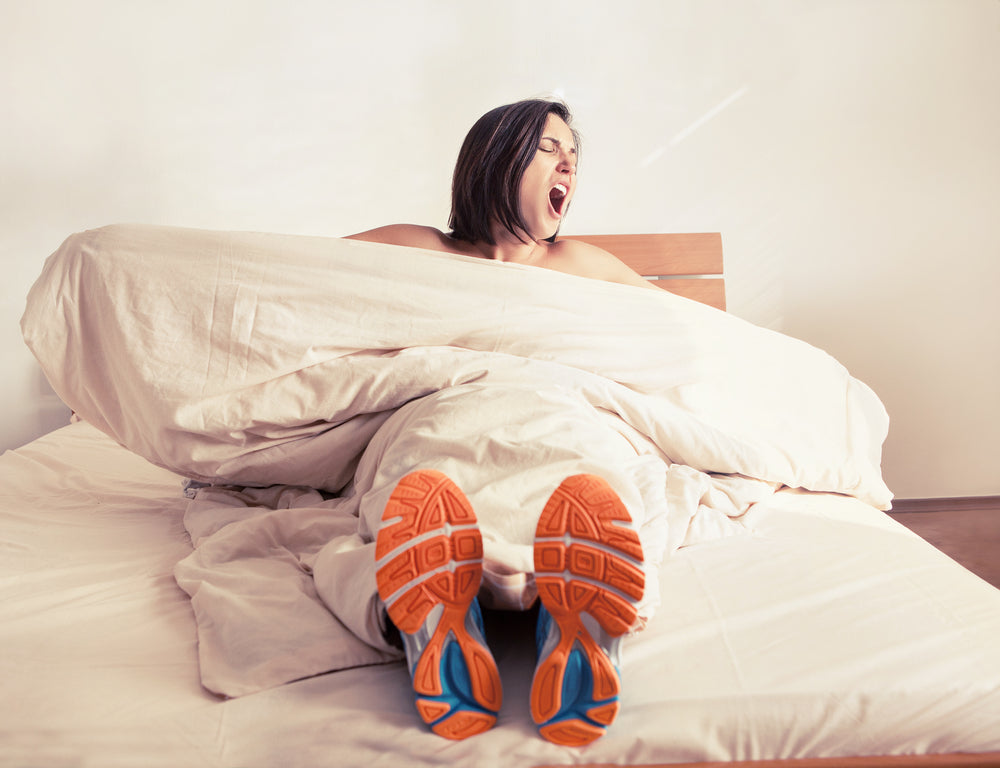Sleep is imperative for anyone and everyone, but, for some, it’s about so much more than just rest. For athletes or anyone who lives a highly active lifestyle, sleep is one of the most important tools you have for physical and mental recovery. When surveyed, athletes consistently rank quality sleep as one of the top performance enhancers because it's what ultimately lets your body rest, heal, and be at its best when you need it.
How Sleep Allows Athletes to Excel
There are several factors that athletes must consider when training or competing: hydration, nutrition, mental preparation, focus, and condition are all key. However, some neglect sleep when trying to check all of these boxes and that is a huge mistake. Sleep is a critical factor of physical and mental success and should be prioritized as a recovery tool.
When you neglect sleep, fatigue sets in and fatigue can lead to a lack of focus and performance that can often result in injury--a serious setback for athletes at any level. A study from the University of California revealed that youth athlete injury rates spiked in games that followed a poor night of sleep, in this case, fewer than 6 full hours. This correlation indicates a strong link between fatigue and reduced performance and injury occurrence, so you should prioritize sleep especially before a game or competition.
Reaction Times & Decision Making
In many sports, thinking on your feet and reacting quickly are of the utmost importance. If you cannot react quickly to your opponent or team member, you could lose the game. Fatigue is commonly marked by slowed reaction times and brain fog, which impair your ability to be your best and most competitive self. You may think that staying up all night to study plays and tactics could be a better use of your time than sleeping, but this is a very common pitfall that you should avoid.
One study out of Harvard Medical School proved, “being awake for 22 hours straight can slow your reaction time more than four [alcoholic] drinks can.” It’s well known that fatigue can have more destructive side effects than various levels of inebriation, and sports is no exception to that rule.
Brain fog and fatigue are especially detrimental to accuracy and speed in athletes. Both of these are imperative to every sport from hockey to track and field. Stanford University actually tracked rates of speed and accuracy in their Men’s Basketball team when they got as much sleep as possible when compared to average rates of sleep. Shooting accuracy improved by almost 10% as did 3-point shots. These improvements in accuracy and skill are huge when considering all it took was a good night of sleep.
How Can You Sleep Better?
While sleeping more can seem like an easy task, it can be challenging when you consider all the factors that can impede quality sleep. Stress and anxiety are two such problems, but there are also more insidious issues that can start to impact your sleep even without your knowledge.
Sleep disorders can affect anyone and everyone regardless of age, gender, or race. You may already be familiar with certain sleep disorders like insomnia, but others like narcolepsy, restless leg syndrome (RLS), and obstructive sleep apnea (OSA) are much more harmful in the long run. Of these issues, the most common is OSA but most of those suffering from OSA may not even know they have it.
How to Diagnose and Treat OSA
OSA is a sleep disorder where the body obstructs the airways during sleep. When you sleep the muscles in your mouth and throat relax and can sag, blocking your airways and causing you to choke and gasp for air. The problem is that, when this happens, the body “wakes up” but the mind may not. So, it’s very possible that you could believe you’re getting a great night’s sleep, but actually be sleeping very poorly and waking up multiple nights a night––or even multiple times an hour.
A sleep study is the best way to get a clear OSA diagnosis which would then lead you to one of several treatment options. There are two central kinds of sleep tests: in-lab sleep studies and at-home sleep testing. The latter is often more comfortable, more convenient, and more cost-effective than in-lab studies. In order to move forward with home sleep testing, you’ll need to find a reliable provider, like ApneaMed, and secure a home sleep testing unit that can track your vitals and give board-certified sleep physicians the data they need to make a clear diagnosis and treatment recommendation.
Sleeping better doesn’t have to be complicated, and, with home sleep testing, you don’t have to undergo complex and expensive testing just to perform at your best. Especially if you are an athlete, sleep is so very important to your speed, accuracy, performance, recovery, and overall happiness. It’s clear you love your sport and are passionate about doing your best every day, so why not seek out the tools that will help you sleep better, sooner.

